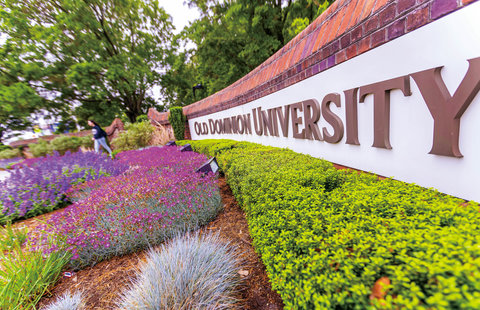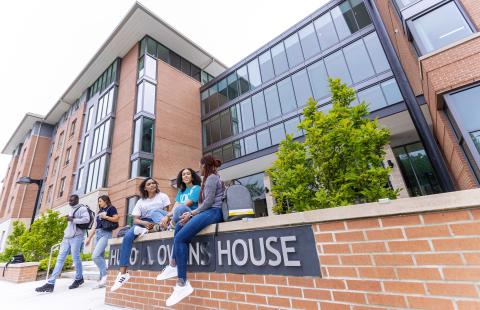This emphasis provides students with an opportunity to delve more deeply into the fields of literature, composition, and linguistics while developing the knowledge, skills, and dispositions to implement equity pedagogy in the secondary and post-secondary English class.
Program Highlights
-
Invites participants in the program to strengthen their disciplinary understandings, pursuing graduate-level coursework in literature, linguistics, and rhetoric and composition
-
Allows participants in the program to select methods courses that will most support them in their growth as teachers of English (These courses include Pedagogy and Instructional Design; Teaching Literature; Teaching Composition, Grades 6-12; Teaching College Composition; Methods and Materials in TESOL; Creative Writing Pedagogy etc.)
-
Includes field experiences in schools as well as in university and community programs that aim to empower readers and writers
-
Provides opportunities for participants in the program to learn to write as teachers of English through designing lessons and units as well as crafting blog posts, essays, and articles that propose innovative approaches to teaching and learning in the English class
-
Prepares participants in the program to share their ideas about teaching and learning in the English class at local and national conferences that support secondary and post-secondary English teachers in their growth as practitioners and researchers of English education
Careers
Check out these ideas from ODU's Center for Career & Leadership Development and the Occupational Information Network (O*NET). A median salary is a midpoint of what people typically earn—half of those surveyed earned above the median salary, and half earned below.
English Language and Literature Teachers, Postsecondary
Teach courses in English language and literature, including linguistics and comparative literature. Includes both teachers primarily engaged in teaching and those who do a combination of teaching and research.
Instructional Coordinators
Develop instructional material, coordinate educational content, and incorporate current technology in specialized fields that provide guidelines to educators and instructors for developing curricula and conducting courses. Includes educational consultants and specialists, and instructional material directors.
Education Teachers, Postsecondary
Teach courses pertaining to education, such as counseling, curriculum, guidance, instruction, teacher education, and teaching English as a second language. Includes both teachers primarily engaged in teaching and those who do a combination of teaching and research.
Secondary School Teachers, Except Special and Career/Technical Education
Teach students in one or more subjects, such as English, mathematics, or social studies at the secondary level in public or private schools. May be designated according to subject matter specialty.
Requirements
Featured Courses
Required of most graduate students in English, usually in the first semester. Survey of English as an academic discipline; issues and trends in scholarly journals; research strategies and conventions for graduate-level papers and master's theses; critical approaches to literature.
A study of the theory and practice of teaching writing. Special attention will be given to the ways effective teachers allow theories and experiences to inform their pedagogical strategies.
This course is designed to provide an intensive examination of issues, approaches, and methods utilized in the teaching of literature, particularly literature written for children and young adults.
Cost of Attendance
We believe in providing students with transparent and accessible information about the cost of attendance.
Review the estimated tuition rates for the 2024-25 academic year (subject to change). Other fees are assessed for special services and certain academic programs. Non-resident rates are charged for anyone who is not a current Virginia resident, including international students.
Ways to Fund Your Degree
There are a few ways for you to save on the cost of attending Old Dominion University, including scholarships, assistantships, and student loans. For more details about financial aid at Old Dominion, visit the Financial Aid Office page.
Graduate Assistantships
Students have the option of applying for a Graduate Assistantship offering a stipend against tuition while gaining experience in research, tutoring, or in the classroom.
Take the Next Step
Contact

Additional Programs
Are there other programs at ODU I may be interested in?
With over 120 undergraduate programs, 130 graduate programs at the master's, education specialist and doctoral levels plus a wealth of certificate and professional development programs, Old Dominion University has the program for you. Visit our academic program listing page to see other programs ODU has to offer.






